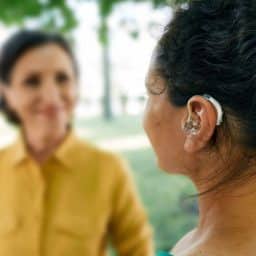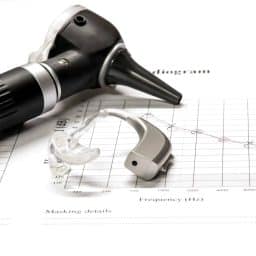What To Know About Hearing Loss Surgeries

Nearly 30 million people age 12 or older has hearing loss in the United States. When not addressed, it has the potential to negatively impact quality of life. There are varied treatment options for hearing loss, depending on its cause and in some cases, surgical intervention is necessary. Depending on the form of hearing loss,…
New Research Indicates Link Between Zinc and Hearing Loss

Research to understand noise-induced hearing loss has achieved a significant milestone, thanks to a recent finding. With approximately 15% of adults in the U.S. affected by hearing loss, often due to continuous exposure to excessive noise, new research could pave the way for reducing exposure-related hearing loss. The Zinc Connection Researchers at the University of…
GRAND OPENING OF OUR NEW HEARING HEALTH CENTER OFFICE
Our new Hearing Health Center office in Torrance offers numerous features and amenities that make getting the hearing help you need easier and more comfortable—come check it out for yourself, with doors opening on March 1, 2024. Patients at the Torrance office will enjoy access to: Patients should expect the same services and care at…
How Are Stress and Hearing Loss Connected?

It’s no secret that stress can wreak havoc on our bodies, but what’s less known is how it can quietly undermine our hearing health. Understanding the connection between chronic stress and auditory issues is crucial for maintaining not just our overall health, but also our ability to hear long-term. Stress And Your Ears The inner…
What to Do if Your Child Gets Something Stuck in Their Ears

An object stuck in your child’s ear isn’t usually a cause for concern. But, objects stuck in the ear can cause trauma to the ear, resulting in hearing loss. So, when it happens, it’s important to know the proper steps to take to ensure you’re protecting your child’s hearing. Usually, you will know if your child…
What Is the Connection Between Concussions and Auditory Processing?

A concussion is a mild form of traumatic brain injury (TBI) caused by a jolt, blow or bump to the head, most often associated with sports and car crashes. Concussion symptoms will vary in severity depending on the type and force of impact but often include headache, nausea or vomiting, loss of consciousness, slurred speech,…
What Is Hidden Hearing Loss and How Is It Identified?

Standard hearing tests determine how well an individual hears specific frequencies of sound. They are the most common method of identifying hearing loss and cannot diagnose hidden hearing loss. Hidden hearing loss is diagnosed through a speech-in-sound test. You may be a good candidate for a speech-in-sound test if you’re experiencing hearing difficulties but display…
Ways to Support a Coworker with Hearing Loss

The National Institute on Deafness and Other Communication Disorders reports, “Approximately 15% of American adults (37.5 million) aged 18 and over report some trouble hearing.” Based on this statistic, chances are you have at least one coworker who experiences hearing loss. In this post, we review ways to support a coworker with hearing loss. Include…
How To Prevent Hearing Loss While Riding Motorcycles

When it comes to motorcycles, everyone knows how important it is to wear protective gear like helmets when riding down the Angeles Crest Highway. However, what’s not discussed as much is how important it is to protect your ears and take steps to prevent hearing loss while riding motorcycles. How Loud Noise Can Damage Your…
What Are the Differences Between Conductive & Sensorineural Hearing Loss?

There are three main types of hearing loss: conductive, sensorineural and mixed. The first two are classified based on where the problem is within the ear, while the last one is a combination of both. In this post, we focus on conductive and sensorineural hearing loss – primarily, the differences between them. Where They Occur…